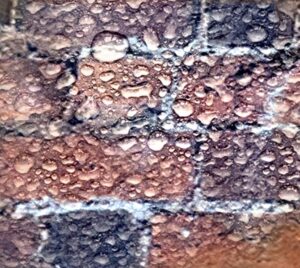The development of moisture risk assessment for traditional solid bricks in London
UCL Ethic ID: 20231222_IEDE_PGR_ETH
PhD Researcher: Bingyu Xu (UCL Institute of Environmental Design and Engineering)
Supervisor: Prof. Anna Mavrogianni and Dr Valentina Marincioni (UCL Institute of Environmental Design and Engineering)
Background
In the UK, the number of newly constructed buildings each year is small. For instance, in 2022, new buildings were less than 1% of the existing building stock. A large number of existing buildings are made of brick and stone, many of which feature solid walls. These buildings which have poor energy performance were responsible for nearly 30% of housing stock energy consumption and 36% of carbon emissions in the UK. Therefore, retrofit is needed to be taken into practice, which has a high potential for building stock performance improvement, and can also considerably contribute to achieving UK Government’s pledge on reducing greenhouse gas emissions by 100% before 2050.
buildings were less than 1% of the existing building stock. A large number of existing buildings are made of brick and stone, many of which feature solid walls. These buildings which have poor energy performance were responsible for nearly 30% of housing stock energy consumption and 36% of carbon emissions in the UK. Therefore, retrofit is needed to be taken into practice, which has a high potential for building stock performance improvement, and can also considerably contribute to achieving UK Government’s pledge on reducing greenhouse gas emissions by 100% before 2050.
Generally, there are several viable methods for building retrofit. Among them, adding thermal insulation is one of the most effective approaches for solid wall building retrofit. It is because that a large proportion of heat loss in dwellings can be attributed to external walls, accounting for approximately one-third of the total heat loss. On the other hand, at the end of 2021, nearly 91% of solid wall dwellings were without insulation and there are a vast majority of solid wall buildings in London, approximately 1.5 million, are uninsulated. This highlights the great potential for insulating these buildings to improve their building performance.
However, the insulation layer will affect the movement of water and air inside the wall to change the moisture balance of the wall to increase moisture risks. For example, excessive moisture content inside the wall can lead to deterioration and degradation of building materials, which can negatively affect building energy behaviour. Consequently, hygrothermal analysis can be one of the key steps for building retrofit on historical solid buildings, which plays a vital role to understand the moisture performance of building structures. This analysis needs to consider material properties such as absorption coefficient, porosity, bulk density etc. Nevertheless, an important limitation on the application of the analysis is the lack of hygrothermal material property data on existing construction material properties in the UK and also a comprehensive understanding of the moisture risks of solid brick buildings is absent.
About the research aims
In recognition of this knowledge gap, this PhD research focuses on characterizing building materials, collecting and analyzing data for solid brick buildings. The ultimate goal is to establish a framework that will facilitate the decision-making process in the retrofit of solid wall buildings to provide appropriate moisture control strategies. The research objectives are as follows:
- To collect different types of bricks and investigate their hygrothermal properties through experiment testing.
- To have a thorough understanding on the moisture behavior of tested bricks by importing results from experiment into Delphin to conduct hygrothermal simulations.
- To understand the historical background information of each brick type via integrating maps, local archives and construction information.
- To set up a framework on moisture risk assessment in traditional bricks in London.
Taking part in research
You are invited to take part in this project. We are currently looking for a small number of bricks from buildings constructed in London between 1850 and 1930. If you have any project where bricks are discarded (for example as part of a demolition or a building extension), you can support this research by donating some bricks for testing. Please contact Bingyu Xu at Bingyu.xu.20@ucl.ac.uk if you wish to participate.
For detailed information about participating in our research, please refer to the Participant Information Sheet (pdf).
Contact for further information
Please contact Bingyu Xu at Bingyu.xu.20@ucl.ac.uk if you have any queries about this research. You can also contact ukcmb@ucl.ac.uk.
